Book Review: King of Ashes by Raymond E. Feist
I received a review copy from the publisher. This does not affect the contents of my review and all opinions are my own.
King of Ashes by Raymond E. Feist
Mogsy’s Rating: 3.5 of 5 stars
Genre: Fantasy
Series: Book 1 of The Firemane Saga
Publisher: Harper Voyager (May 8, 2018)
Length: 512 pages
Author Information: Website | Twitter
I must preface this review with a confession: I had never read Raymond E. Feist before picking up King of Ashes, so I was going in with a completely blank slate and no pre-conceived notions of the author or the novel. What followed was a satisfying read, if a bit mundane and old hat at times. It seems to me that over the years, the genre has moved on from a lot of the ideas featured in this story. Nevertheless, I think it’s perfect for anyone seeking a fun traditional epic fantasy, and despite all the well-worn tropes, I enjoyed myself.
The book opens on a bloody scene as Baron Daylon Dumarch, a Free Lord, watches the execution of every single family member of the royal family of Ithrace. The monarch of what was once one of the five great kingdoms of North and South Tembria had just been betrayed by the other four kings in a brutal and decisive battle, signaling an end to the ancient covenant that had protected the peace and balance for centuries. Now King Lodavico of Sandura, the man at the head of the takeover, is determined to completely destroy the line of King Steveren of Ithrace, putting everyone with Firemane blood to the sword.
But in the chaos, a child was overlooked—a baby boy who was spirited away to safety in the confusion of battle. Daylon, who was close friends with Steveren, returns to his pavilion to rest after the executions, feeling sick for the part he played in the betrayal, even though he was forced to do it for the sake of his people. Waking up, he finds that someone had left a male infant in his quarters, and after seeing the boy’s fiery red hair, understands right away this must be the last surviving Firemane child and heir to the now ruined kingdom of Ithrace. Keeping the baby’s existence to himself, Daylon decides to entrust his care to the agents of the “Invisible Nation”, a secretive organization that trains highly skilled assassins and spies on their island of Coaltachin.
All this happens in the prologue, which is then followed by the beginning of the tale in earnest, picking up approximately sixteen years later. The Firemane baby has grown to become a hot-headed young man named Hatu, whose foreign physical traits have made him something of an outcast growing up in the south among other students at the school on Coaltachin. About half the story is told from his perspective, unfolding like a coming-of-age narrative about growing up, mastering his studies, and discovering the physical and emotional changes that come with adolescence. More and more, Hatu is also starting to notice his good friend Hava, who is the best fighter in her class, even though any romance between students is forbidden. Then there’s Declan, the other major perspective in this novel, who is the apprentice of a very talented blacksmith once in Baron Daylon Dumarch’s service. Readers get to meet Declan just as he has achieved master status, and circumstances have forced him to strike out on his own much sooner than he expected.
While there is a smattering of other POVs peppered throughout the novel, King of Ashes is mainly told through the eyes of these two young men—Hatu and Declan. For the most part, they are very archetypal characters, i.e. the lost heir and the bastard apprentice, and no doubt avid fantasy readers will have seen their like many times before. And yet, Feist prevents them from feeling too stale by keeping his story moving at an energetic pace. It’s rather common for first volumes of new epic fantasy series to become bogged down by the minutiae, taking forever to get started, but I was happy to see that this is not the case here.
In fact, I found that Feist could be downright frank in his writing style, cutting straight to the matter while leaving no room for subtlety. Everything is spelled out for the reader when it comes to his characters’ thoughts and motivations, and there is little finesse or attempt to show instead rather than tell. To be fair, this isn’t always bad; the writing is reminiscent of what I would call a classic or old-school style, in that it is very straightforward and easy to read. However, at times it made his characters feel flat and difficult to connect with, a prime example being Hatu when he was just becoming aware of his attraction to Hava. Their ensuing romance, if you could even call it that, felt awkward and forced, for you had the author laying out Hatu’s feelings with all the emotion of a dry clinical report. There’s a strong sense of “what you see is what you get” when it comes to the characters, placing them behind a layer of detachment which made it hard to feel invested in them.
Still, I enjoyed reading this book and discovering the world’s secrets. Characters like Daylon Dumarch are especially intriguing, since he is playing a long game. Now that the many threads of the story have converged in his barony, it’s anyone’s guess what will happen next. King of Ashes manages to set the stage marvelously for more to come, and I’m curious to see where Raymond E. Feist will take things in the sequel.
![]()
![]()







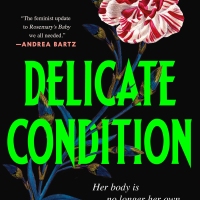

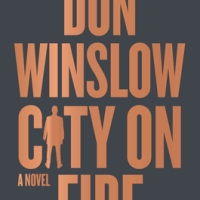
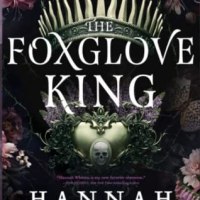
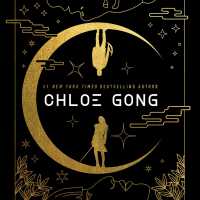
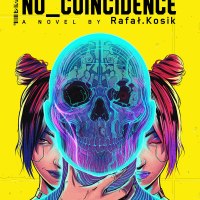
Hmmm, also you have never read Feist!?!?!?!?!?! LOL, I LOVE Magician, but do confess that that series is the one for me, the rest, meh
LikeLiked by 1 person
I know, I know! I totally missed the boat on that one!
LikeLike
I haven’t read Feist in AGES, but like Blodeuedd said I loved the Magician series. Haven’t read anything else by him…
LikeLike
Yeah, if I read anything more by Feist before the next book of this series comes out, it’ll probably be The Magician series. Heard so much about it!
LikeLike
Magician (Apprentice & Master), Silverthorn and Darkness at Sethanon were about the only books of Feist’s that I really enjoyed. The rest in his prolific Midkemia world never really worked out so well for me.
I might try this series once it’s done and I hear a lot of good reviews, like this one.
LikeLike
I’ve heard the same thing for a lot of people, including my husband. They all say the Magician series and maybe a couple of the later ones are worth it, the rest are sort of filler/not so great. I’m going to have to dig around my husband’s library to see which all of these books he has.
LikeLiked by 1 person
I’ve never read him either, and at this point (I hate to say it) I probably never will. There are so many other books/authors I’d rather focus on😊
LikeLike
Oh man, that makes me feel so relieved I wasn’t the only one! To be honest, for such a big name in Fantasy, I kinda expected more from King of Ashes, but it wasn’t bad 🙂
LikeLike
I think I liked it a bit more than you but in any case I’m curious to see the sequel now!
LikeLike
I do remember seeing your review! I agree, you probably enjoyed it more than me, but I still would love to continue as well 🙂
LikeLike
Nice review! For me Feist lost his touch in the later Riftwar books, relying too much on past ideas and characters for success. I’m hoping that a fresh start will renew my enthusiasm for him again. Glad to hear it was a decent classic fantasy read. 🙂
LikeLike
I know what you mean, I kinda saw a bit of that “losing touch” here with King of Ashes. It seems the genre has passed him by, and he’s still relying on recycled and time worn ideas and tropes. Oh well, can’t say it wasn’t fun though!
LikeLiked by 1 person
I’ll take fun any day. 🙂
LikeLike
I have never read Feist, either, and the fact that he’s “old school” does not exactly encourage me to try his works, although I must admit that the premise of this series does pique my curiosity a little… 🙂
Thanks for sharing!
LikeLike
Then you might like Feist, since the premise seems very like the premise of all his other books!
LikeLike
It actually makes me feel better that there are so many others who haven’t read Feist, there were times I felt like I was the only one who hasn’t read him! I’m glad I finally rectified that though 😀
LikeLike
I’m hoping to get around to this! Though, I do prefer some subtlety in books, so we’ll see how it goes!
LikeLike
Yeah, his style reminds me very much of that class of “old school” traditional fantasy authors. It feels sort of dated, but hey at least I had fun with the book!
LikeLike
I’ve seen Feist’s name many times, but I haven’t read him, either.
LikeLike
That was me before reading King of Ashes! I would see his name everywhere, and my curiosity would always be piqued.
LikeLike
Surprised to see so many people never having read Feist, one of the absolute foundations of the genre.
For what it’s worth: his best books are probably his collaboration with Janny Wurts, the “Empire” trilogy, following a young noble girl in a world based on mediaeval Korea and Japan. They’ve aged in some ways (the patronising tone gets a bit too much in the second volume, where a traveller from a traditional ‘European’ fantasy world is important), but they’re still genuinely enjoyable reads that recast a lot of traditional fantasy in a very different angle (the honour-and-family-dominated setting, the political focus (where war is a political tool rather than the point of the story), and the female protagonist (and not the normal fantasy tomboy, either, but one for whom decisions about marriage and children and housekeeping and estate management are central, and are literally life-and-death). Plus, ninjas. So many ninjas. I wouldn’t call it a must-read classic, but I would call it a very solid bit of entertainment for someone who wants a touch of “old-school” with a twist.
Among his own solo books, Magician is the most important historically, but to be honest isn’t all that good in its execution, particularly in the first half; the two sequels have some appealing characters and great scenes, but aren’t that special either, and get a bit repetitive.
IMO, his most interesting solo works are the first three Serpentwar novels, where he actively tries to do some things that are a little different. The first novel is primarily “The Dirty Dozen” taken out of Nazi germany and put into mediaeval, demon-controlled city-states, but with a weird Planescape-y subplot. The second novel is an interesting attempt to pivot into a type of fantasy novel revolving around the early stockmarket, option trading and naval underwriting. Then in the third book it’s back to WWII, this time for the horrors of a combination of Napoleon’s and Hitler’s attempts to invade Russia, with Russia as the good guys. Unfortunately, the final, fourth volume kind of botches the landing, with its combination of French Resistance and yet another things-are-not-what-they-seem-because-of-multiple-planes-of-reality twist. I haven’ re-read Serpentwar in ages, but just these descriptions remind me that at leas the ideas in them were interesting…
His other novels, as I recall, are either “fun but not very good” (the two novels between Riftwar and Serpentwar) or “repetitive and not very good” (the novels after Serpentwar, where he started just writing novelisations of his computer games, and every book is basically the same thing yet again). I gave up pretty quickly.
It’s nice to hear that this post-Midkemia work isn’t actually all that bad, although it does sound VERY much like most of his non-Serpentwar, non-Empire novels…
LikeLike
Wow, thanks for the recommendations! I hadn’t even heard of his collaboration projects with Janny Wurts, and to be honest, based on your descriptions of them, they sound more up my alley than his more traditional fantasy. I have a soft spot for Asian-inspired fantasy, so a story taking place in a world based on Medieval Korea and Japan sounds amazing to me.
I still feel like I have to read Magician at some point though, because like you said, it’s considered important historically and it’s like his “classic”. If I read something else by Feist before the sequel to King of Ashes comes out, it’ll probably be this.
LikeLike
Do try the Empire novels – if nothing else, they take some different approaches compared to most fantasy. [although of course their world probably bears as much relation to actual mediaeval korea as normal fauxdieval stuff bears to actual mediaeval europe…]
If you read Magician, I would just say to stick with it to the end. As I recall, the first half is much more “D&D-adjacent” (it started as an RPG Feist was running with some friends), and it’s the second half that gets a lot weirder (and hence better).
Incidentally, technically you should read Magician and sequels before the Empire books. Empire is set on the planet that invades the homeworld of Magician during Magician. For most of it, that’s all you need to know, but the second Empire book is shaped by something that happens near the end of Magician. Personally, though, I think it’s cooler not to have read Magician first, because I like the “what the hell is going on?” feel of having the plot of one series suddenly derailed by a major event in another series – it means the reader is in the same situation of ignorance as the characters! But some readers might not like that unsettling feeling…
[and yeah, it may an exaggeration to say that we wouldn’t have the modern fantasy genre without Magician… but it’s not a HUGE exaggeration…]
LikeLike
I did read the first three books starting with the Magician and I really enjoyed them at the time, but I was fairly new to fantasy at that point and they were recommended to me – I’m not sure that I’d go back to Feist now though. Maybe. I’ve not completely written off the idea but I feel like I’ve moved on so it’s more a statement about me than Feist.
Lynn 😀
LikeLike
Yeah straight forward isn’t always bad, but it’s a pity about the characters falling a little flat at times. But sounds good overall. Great review!
LikeLike
I tried to read Magician a couple of years ago, but DNF because I didn’t connect with any of the characters and found the writing style pretty dry. If I’d picked it up in my teens I think I’d have loved it, but I’ve read too much great, GREAT fantasy to be able to read Feist now. I sort of think of him as a big brick in the wall on which all my favourite authors sit. 😀
LikeLike
Pingback: Mogsy’s Bookshelf Roundup: Stacking the Shelves & Recent Reads | The BiblioSanctum